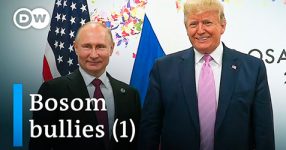The documentary titled “Mao’s Great Famine” delves into the harrowing history of China’s Great Leap Forward, initiated by Mao Zedong in 1958. The ambitious program aimed to propel China into the socialist utopia within 15 years. However, the dream turned into a nightmare, leading to unprecedented economic chaos and a devastating famine that claimed the lives of around 45 million Chinese.
Breaking the Silence: Unveiling a Taboo
For 50 years, Mao remained an untouchable icon, and the Chinese Communist Party maintained a deafening silence on the tragedy. The film marks the first attempt to lift the curtain on this bloody episode in Chinese history. The documentary follows Jun, a young historian from the University of Hong Kong, who, over four years, crisscrosses the Chinese countryside, collecting testimonies from survivors. The act of breaking the silence around the Great Famine is not without danger, as very few have dared to defy the taboo.
Personal Connections: Duty of Memory
Jun’s task becomes not only a duty of memory but also a personal journey, as several members of her family died of starvation during the Great Leap Forward. The documentary also features Yang Jang, a journalist and historian, whose own father perished during that period. His book, “Tombstone,” published in 2008, was the first Chinese book on the Great Famine, banned in mainland China.
Historical Context: Origins of the Communist Regime
To understand how the Great Leap Forward led to the death of millions, the documentary takes us back to the origins of the Communist regime. It begins with the taking of Beijing by the Red Army in 1949, where Mao faced the monumental task of overcoming traditions, mindsets, and archaic ways of life to usher in a new era for China.
Dependence on the USSR: The Treaty of Friendship
In pursuit of economic help and a strategic alliance, Mao sought assistance from the USSR, signing a treaty of friendship that solidified China’s dependence on Moscow. The aid came with a cost – China committed to following the Soviet economic model and repaying a significant debt. This marked the first step towards the Soviet model, leading to a massive reform of agriculture within a year of coming to power.
Land Redistribution and Class Struggles
Land redistributions, initially benefiting poor peasants, eventually led to the settling of scores encouraged by the Communist Party. Mao, fearing the emergence of small landowners, initiated a massive reform of agriculture, impacting half of all cultivated land and 300 million poor peasants. The documentary explores how this process fueled class struggles, silenced opposition, and set the stage for the Great Leap Forward.
Great Leap Forward: From Famine to Madness
The Great Leap Forward took a tragic turn as it led to radical collectivization, the elimination of the family unit, and the imposition of collective life. Food distribution based on merit, elimination of wages, and compulsory attendance marked the decline into a brutal and demotivated existence for millions. Harvest exaggerations, falsified figures, and the competition among communes worsened the situation, leading to poor harvests, food shortages, and the onset of famine.
The Unraveling Nightmare: Escalation of Madness
The documentary vividly portrays the escalating madness during the Great Leap Forward. Communes competed for rewards while inhabitants suffered from food shortages. Exaggerated production figures, false representations, and radical collectivization caused the first food shortages. Mao’s relentless pursuit of increased agricultural production led to absurd campaigns, like the “Four Pests Campaign,” resulting in ecological imbalances and exacerbating the famine.
Luan Conference and the Aftermath: Denial and Staged Prosperity
In July 1959, the Luan Conference brought together party leaders to address issues with the Great Leap Forward. Despite recognizing the failures, Mao continued to pursue unrealistic goals. The staged prosperity of cities protected from the harsh reality in the countryside continued to deceive foreign journalists and political leaders. The documentary emphasizes how the famine persisted, claiming countless lives while Mao denied responsibility.
The End of the Famine: Confronting Mao’s Responsibility
It was only in 1962 that the party, led by Lu Shuai, brought together 7,000 cadres to put an end to the disastrous Great Leap Forward. Lu Shuai openly contradicted Mao, holding the party largely responsible for the famine. The documentary reveals how the famine’s reality was hidden, with staged events to deceive Western journalists and political leaders about the true extent of the tragedy.
Legacy and Controversy: Mao’s Role in the Famine
Mao Zedong, considered one of the great murderers, left behind a country in ruins upon his death in 1976. Despite a grand funeral, the nation was scarred by the memories of the Great Famine. The death toll, still a topic of debate among historians, ranges from 36 to 45 million. The documentary concludes by emphasizing Mao’s unequivocal responsibility for initiating, sustaining, and ultimately ending the catastrophic period in Chinese history.












